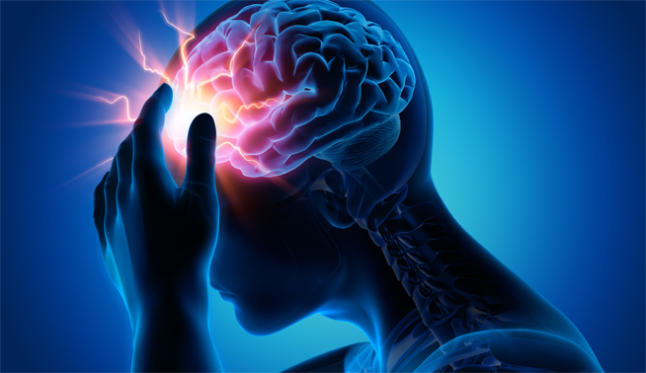Upi: A purified oral version of a marijuana compound may help with treatment-resistant forms of epilepsy, two new clinical trials show.
The researchers found that the compound, cannabidiol (CBD), helped reduce seizure frequency in children and adults with two hard-to-treat forms of epilepsy: Dravet syndrome and Lennox-Gastaut syndrome.
The drug is still experimental, and doctors stressed that it did not help everyone and is not a "cure."
On the other hand, they called the results "very encouraging," given how difficult it is to manage the seizure disorders.
"It's always a good day when we have a potential new option to offer these patients," said Dr. Amy Brooks-Kayal, a pediatric neurologist at Children's Hospital Colorado who was not involved in the research.
She had another caveat, however: The CBD used in the trials is a "purified, pharmaceutical-grade" pill.
"This is very different from medical marijuana," Brooks-Kayal said.
Dr. Elizabeth Thiele, one of the researchers who worked on the two trials, made the same point. She said the drug is "very distinct" from marijuana, which contains hundreds of different compounds.
CBD is one of the main compounds, but it does not produce a "high," explained Thiele, who directs the pediatric epilepsy program at Massachusetts General Hospital in Boston.
Researchers have become interested in testing CBD for treating epilepsy based on studies showing it has anti-seizure properties. Exactly how it works is not yet clear, said Thiele, who also serves as a consultant to GW Pharmaceuticals, the company developing CBD as prescription medication.
Epilepsy is a neurological disorder in which disruptions in the brain's electrical activity trigger seizures. Just over 2 million Americans have the condition, according to the Epilepsy Foundation.
There are many different forms of epilepsy, with Dravet syndrome and Lennox-Gastaut syndrome (LGS) being fairly uncommon.
Only about 2 percent to 5 percent of children with epilepsy have LGS -- which usually involves intellectual impairment along with seizures, the Epilepsy Foundation says. Dravet syndrome is a rare genetic condition that begins in infancy, causing severe seizures and, most often, developmental problems.
Both disorders are tough to control -- even with multiple medications, special diets and other approaches, Thiele said.
For one of the new trials, she and her colleagues randomly assigned 120 children with Dravet syndrome to either have CBD or a placebo added to their standard anti-seizure medication. After 14 weeks, children on CBD saw a 39 percent reduction in their seizure frequency, on average -- versus 13 percent in the placebo group.
The other trial involved 171 children and adults with Lennox-Gastaut syndrome who were randomly assigned to take either CBD or a placebo with their usual medication.
The results were similar: After 14 weeks, the CBD group experienced a 44 percent reduction in seizures, compared to 22 percent in the placebo group.
Both studies were presented Sunday at the American Epilepsy Society's annual meeting, in Houston. They were two of several meeting presentations focused on CBD and epilepsy.
Another study, of 81 adults and children with treatment-resistant epilepsy, looked at whether CBD can make seizures less serious when they do happen. Researchers found that the drug did, in fact, curb the severity of patients' seizures, as well as the frequency.
The University of Alabama researchers cautioned, however, that not all of the patients benefited, and a few worsened.
Yet another study from the same researchers tackled the issue of drug interactions -- which is important, Brooks-Kayal said, since patients with resistant epilepsy are typically on multiple medications.
The researchers found that CBD does interact with several anti-seizure medications: valproate (Depakote), clobazam (Onfi), rufinamide (Banzel), topiramate (Topamax), zonisamide (Zonegran) and eslicarbazepine (Aptiom). For some patients, interaction caused problems such as sedation and a decrease in liver function.
But that doesn't mean patients on those drugs can't take CBD, Brooks-Kayal said. "Drug interactions can be managed," she said, adding that the dose of the seizure medication could be adjusted, for example.
Then there's the issue of side effects. CBD may cause problems like diarrhea, decreased appetite, sleepiness and vomiting. In the two trials Thiele worked on, the vast majority of CBD patients -- 86 percent and 93 percent -- suffered side effects, mostly rated as "mild or moderate."
But, Thiele said, many placebo patients had side effects, too, and it's hard to know how often the problems were caused by CBD itself.
On balance, she said, the drug appears to be safe but researchers still need to learn more about using it along with other epilepsy medications.
Both Dravet and LGS are relatively rare, but treatment-resistant epilepsy is not. According to the Epilepsy Foundation, an estimated one-third of patients have "refractory" epilepsy -- where seizures are not fully controlled with standard medications.
It's possible that CBD could be helpful for at least some of those patients, too, according to Brooks-Kayal.
Thiele agreed and said there is, in fact, already "a lot research interest" in that question.
Research presented at medical meetings is considered preliminary until published in a peer-reviewed journal.
GW Pharmaceuticals said it expects to submit the product to the U.S. Food and Drug Administration for approval in 2017.
Fuente: www.upi.com
